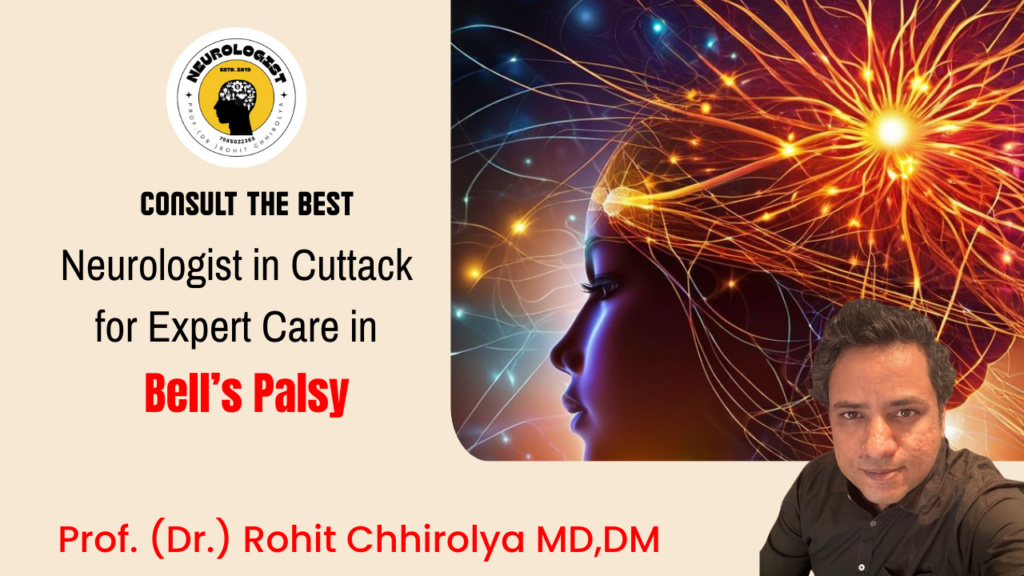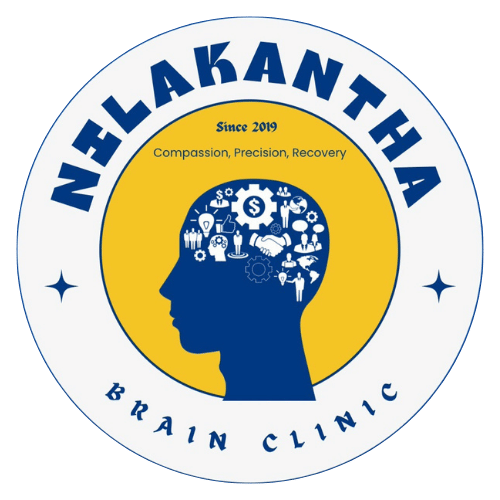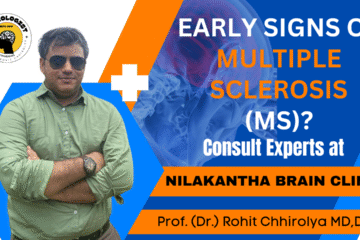
Bells palsy, a sudden facial paralysis caused by inflammation of the facial nerve, affects 15–30 people per 100,000 annually. While often temporary, delayed treatment can lead to permanent muscle weakness. For residents of Cuttack, timely intervention from the top neurologist in Cuttack is critical for recovery. This guide explores Bells palsy causes, treatments, and how to find the best neurology specialist in Cuttack for personalized care.
What is Bells Palsy?
Bells palsy is a peripheral nerve disorder characterized by unilateral facial weakness or paralysis due to dysfunction of the seventh cranial nerve (facial nerve). Unlike stroke, it typically spares the forehead muscles.
Key Statistics:
- 80% of patients recover fully within 3–6 months with early treatment.
- Highest incidence in 15–45-year-olds and pregnant women.
Symptoms of Bells Palsy
- Sudden Facial Drooping: One side of the face becomes slack.
- Difficulty Closing Eye: Risk of corneal damage due to dryness.
- Loss of Taste: Front two-thirds of the tongue.
- Hyperacusis: Increased sensitivity to sound.
- Impaired Speech: Slurring due to weak cheek muscles.
Urgent Note: If accompanied by limb weakness or confusion, rule out stroke with a neuro doctor near me.
Causes & Risk Factors
While the exact cause is unknown, triggers include:
- Viral Infections: HSV-1, Epstein-Barr, or influenza.
- Autoimmune Reactions: Post-viral inflammation compressing the facial nerve.
- Diabetes: 4x higher risk in diabetics.
- Pregnancy: 3rd trimester hormonal changes.
Diabetes-Related Neuropathy Care
Diagnosis: Advanced Techniques by Cuttack’s Leading Neurologists
A neurology doctor in Cuttack will use:
- Physical Exam: Checking forehead muscle involvement (to distinguish from stroke).
- Electromyography (EMG): Measures nerve conduction and muscle response.
- MRI/CT Scan: Rules out tumors or strokes.
Why Choose Nilakantha Brain Clinic?
Dr. Rohit Chhirolya, the best neurologist doctor in Cuttack, combines EMG and clinical expertise for accurate diagnoses.
Treatment Options
1. Medications
- Corticosteroids (Prednisone): Reduce nerve inflammation (most effective within 72 hours).
- Antivirals (Acyclovir): Used if viral infection is suspected.
- Eye Care: Artificial tears and night-time eye patches.
2. Physical Therapy
- Facial Exercises: Improve muscle strength and coordination.
- Electrical Stimulation: Prevents muscle atrophy.
3. Surgical Options
Rarely needed (<1% cases) but includes nerve decompression.
Pro Tip: Early steroid treatment by the best neurology specialist in Cuttack boosts recovery chances by 50%.
Finding the Best Neurologist in Cuttack
Key Criteria
- Credentials: DM (Neurology) certification.
- Experience: Specialization in facial nerve disorders.
- Facilities: EMG, MRI, and rehab services.
Cuttack Neurology Doctor List
- Dr. Rohit Chhirolya, DM (Neurology)
- Clinic: Nilakantha Brain Clinic
- Expertise: Bells palsy, diabetic neuropathy, and autoimmune neuropathies.
- Address: Cuttack, Odisha
- Contact: 📞 7985022365 | 🌐 Schedule Consultation
External Links:
Prevention & Self-Care Tips
- Manage Stress: High cortisol levels weaken immunity.
- Vaccinations: Flu and herpes zoster vaccines reduce viral triggers.
- Facial Massage: Enhances blood flow to paralyzed muscles.
FAQs
Q1: Is Bells palsy contagious?
A: No, but underlying viral infections (e.g., HSV-1) can be.
Q2: Can Bells palsy recur?
A: Recurrence rate is 5–10%, higher in diabetics. Consult the best neurologist near me for preventive strategies.
Q3: How long does steroid treatment last?
A: Typically 10 days (60 mg/day prednisone tapered gradually).
Q4: Can children get Bells palsy?
A: Yes, though rare. Visit a neuro doctor in Cuttack immediately.
Q5: How to find a “cuttack neurology doctor list”?
A: Search online or visit Nilakantha Brain Clinic.
Q6: Are there home remedies to speed up Bells palsy recovery?
A: While medical treatment is essential, warm compresses, gentle facial massages, and acupuncture (as complementary therapy) may aid recovery. Always consult your neuro doctor in Cuttack before trying home remedies.
Q7: Can stress trigger Bells palsy?
A: Yes! Chronic stress weakens the immune system, increasing susceptibility to viral infections linked to Bells palsy. Stress management techniques like meditation are recommended.
Q8: How is Bells palsy different from a stroke?
A: Bells palsy affects only facial muscles (often sparing the forehead), while stroke causes unilateral weakness in the face and body (arm/leg). A top neurologist in Cuttack can differentiate via clinical exams.
Q9: Does Bells palsy affect hearing?
A: Indirectly. Hyperacusis (sound sensitivity) is common due to nerve inflammation, but hearing loss is rare. Report unusual symptoms to your best neurology specialist in Cuttack.
Q10: Can diet influence Bells palsy recovery?
A: Anti-inflammatory foods (turmeric, leafy greens) and vitamin B12-rich diets support nerve repair. Avoid excessive salt to reduce facial swelling.
Q11: Is physical therapy necessary for mild cases?
A: Yes! Even mild cases benefit from guided exercises to prevent muscle atrophy. The best neurologist doctor in Cuttack may refer you to a certified physiotherapist.
Q12: Can Bells palsy cause permanent facial asymmetry?
A: In 10–15% of cases, residual weakness or synkinesis (involuntary muscle movements) may persist. Early treatment minimizes this risk.
Q13: Are there support groups for Bells palsy patients in Cuttack?
A: Yes! Connect with local communities via NHPians Facebook or ask your neuro doctor near me for recommendations.
Q14: Does weather or cold exposure cause Bells palsy?
A: No direct link, but cold may worsen symptoms in existing cases. Keep the face warm and protected.
Q15: Can Bells palsy affect both sides of the face?
A: Rarely (<1% cases). Bilateral paralysis often signals another condition (e.g., Lyme disease) requiring urgent evaluation by the best neurologist in Cuttack.
Act Fast for Optimal Recovery
Bells palsy demands prompt care to prevent complications like synkinesis (abnormal muscle movements). Dr. Rohit Chhirolya, the top neurologist in Cuttack, offers cutting-edge diagnostics and tailored therapies at Nilakantha Brain Clinic.
Don’t Delay—Seek Help Today!
📞 Call 7985022365
🌐 Visit Nilakantha Brain Clinic
Stay Connected:
- Health tips on Instagram.


